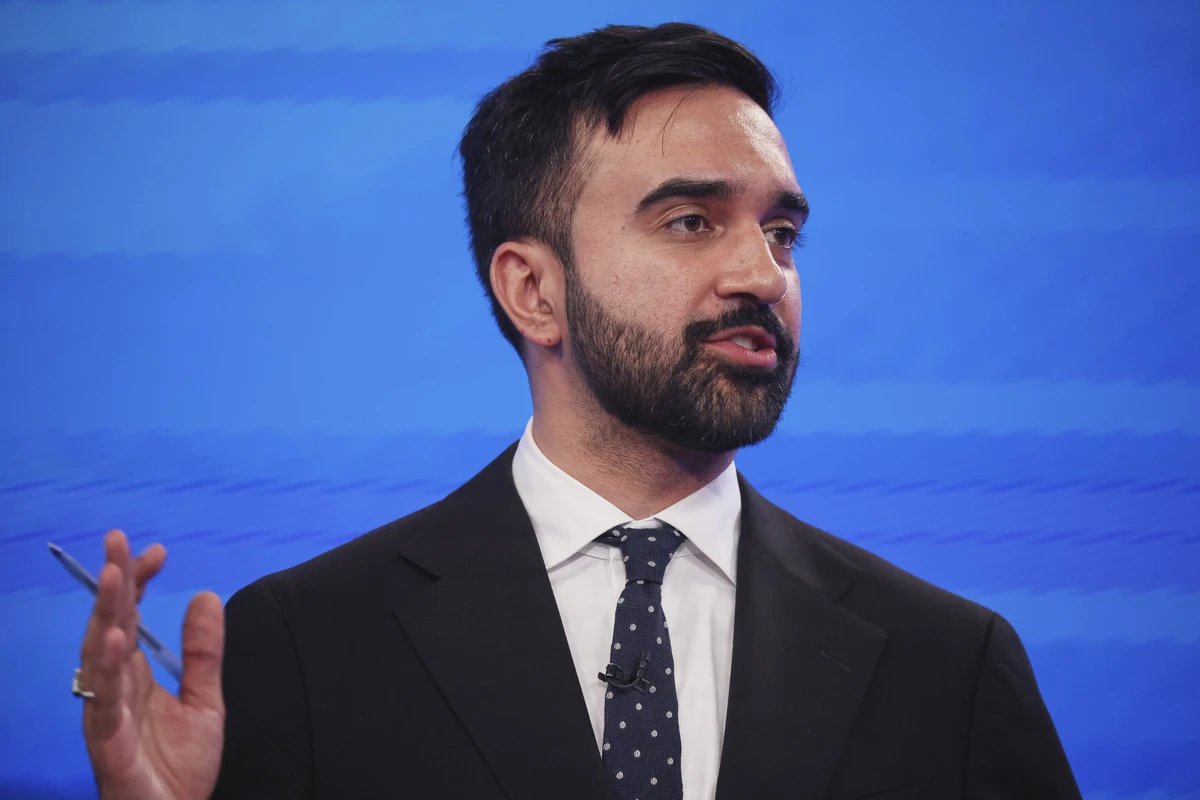Zohran Mamdani, the Democratic nominee for mayor of New York City, is under fire following revelations that he identified as both “Black or African American” and “Asian” on his 2009 college application to Columbia University. The controversy stems from a major data breach at Columbia that exposed over two million student and applicant records — including Mamdani’s — leading to intense public scrutiny just months before the mayoral election.
Mamdani, 33, is a Ugandan-born American of Indian descent and a prominent figure in New York’s Democratic Socialist movement. Critics have accused him of racial misrepresentation, suggesting he may have tried to benefit from affirmative action policies in the admissions process. The information first surfaced after a hacker publicly released application records, claiming the intent was to investigate the university’s ongoing use of race in admissions decisions.
According to reports, Mamdani selected multiple racial categories on the Common Application due to the lack of a specific option for people of Indian-Ugandan heritage. In a statement to the New York Times, Mamdani defended his decision: “Most college applications do not provide an option for Indian-Ugandans, so I selected multiple categories in an attempt to represent the entirety of my heritage.” He added that he described his Ugandan background in the optional section for additional context.
Despite being the son of a prominent Columbia professor, Mamdani’s application to the Ivy League institution was ultimately rejected.
The backlash has been swift and politically charged. Gerard Kassar, chairman of the New York State Conservative Party, accused Mamdani of deliberately misleading the university to gain admission under race-based preferences. “His aim was to gain admission to Columbia through affirmative action,” Kassar said. “He attempted to enter a school by misrepresenting his racial identity.”
Even some Democrats have voiced concern. New York City Mayor Eric Adams and former Governor Andrew Cuomo have both called on Columbia University to release Mamdani’s full application materials, suggesting the need for greater transparency in the admissions process.
Mamdani’s supporters argue that the controversy is being weaponized to derail his campaign, pointing to his consistent record of progressive advocacy and his identity as a first-generation immigrant. They stress that his attempt to describe a multifaceted racial and cultural background is being unfairly distorted for political gain.
As Mamdani remains the frontrunner in the NYC mayoral race, the scandal may influence undecided voters and reignite broader debates over identity, privilege, and fairness in elite college admissions. Whether the issue will ultimately damage his campaign remains to be seen — but it has undeniably added fuel to an already heated political season.

Sarah Mitchell is a bestselling novelist recognized for her insightful and emotionally resonant stories that explore the complexities of human relationships. Originally from Denver, Colorado, Sarah grew up in a family of teachers who nurtured her curiosity and love for storytelling. She studied psychology at Stanford University, where she became fascinated by the intricacies of human behavior—an interest that would later shape her writing career. Sarah’s novels are praised for their nuanced characters, intricate plots, and ability to capture the subtle tensions that define love, friendship, and family ties. Her breakthrough novel, The Spaces Between Us, became an instant bestseller, lauded for its honest portrayal of strained family relationships and the fragile bonds that hold people together. Since then, she has published several works that continue to captivate audiences around the world. Outside of her writing career, Sarah is passionate about mental health advocacy and often partners with organizations to promote awareness and support for those struggling with emotional well-being. Her personal life is quieter—she enjoys hiking in the Colorado mountains, practicing yoga, and spending time with close friends. With each new book, Sarah Mitchell cements her reputation as a writer who illuminates the beauty and struggles of human connection.









